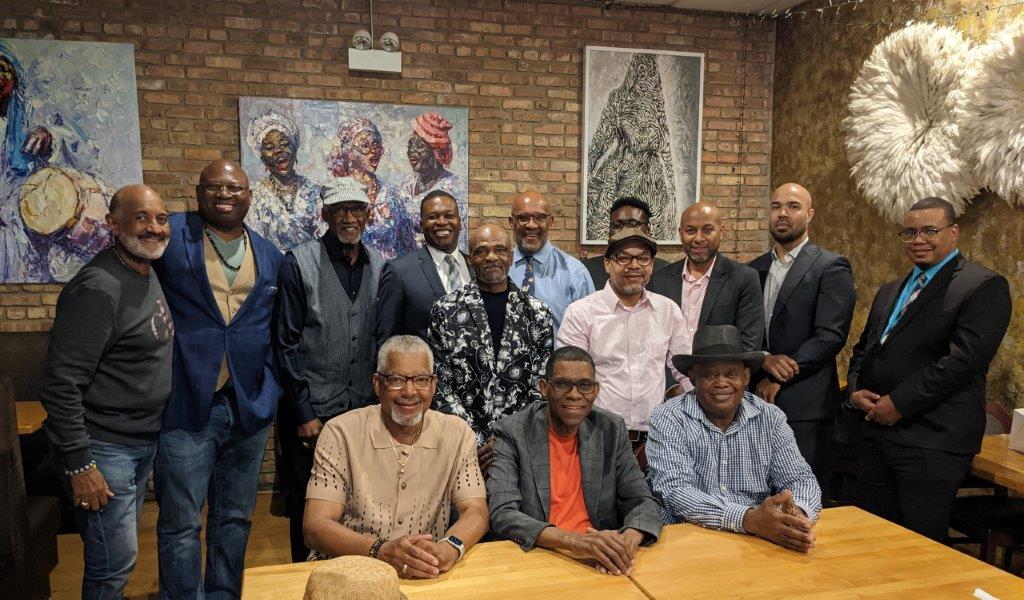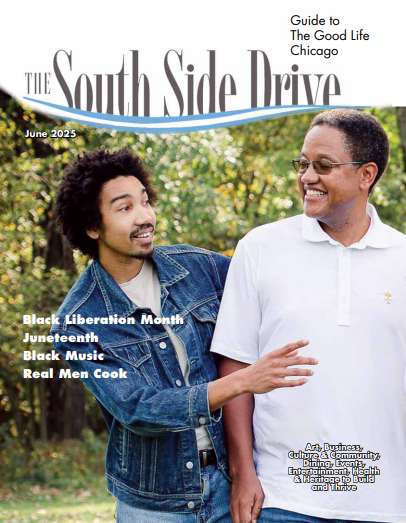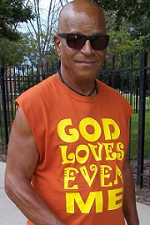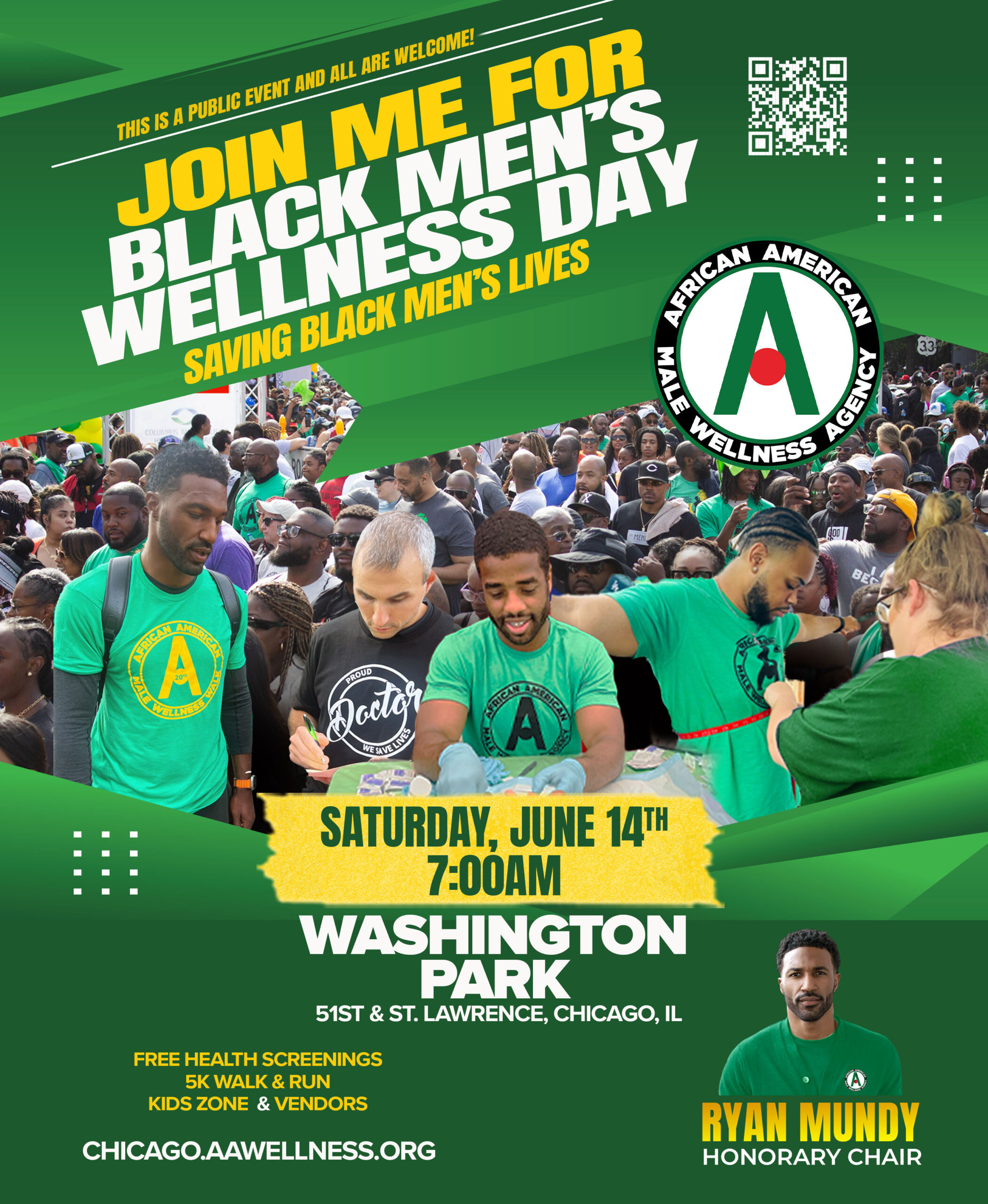We all know someone who has been diagnosed with prostate cancer, someone who is fighting it, and someone who has died from the disease. Black and African American men are much more likely to develop prostate cancer. According to the Center for Disease Control and Prevention (CDC) Black men are 1.7 times more likely to be diagnosed with it, and 2.1 times more likely to die from prostate cancer.
Some may say that the lower socioeconomic status of Black men is a factor, as lower socioeconomic status is correlated with increased cancer risk and worse outcomes.
Then there’s the racism that impacts Black people in every aspect of life, and health care is no exception. It’s no surprise that because of racial bias, Black men are less likely than white men to be offered the option of having a PSA (Prostate Specific Antigen) test and are more likely than white men to be told that the benefits of the PSA test are uncertain. A recent study found that African American men diagnosed with early-stage prostate cancer were less likely than white men to receive any type of treatment for that cancer.
We are familiar with the Honorable Minister Louis Farrakhan’s battle with prostate cancer. Because it was revealed in an advanced stage, the Minister went through a time when the odds of his survival were questionable. He conquered the disease and today, at 90 years old, he is still standing tall. But everyone doesn’t have access to the care the Minister was afforded. Another survivor, United States Defense Secretary Lloyd Austin, didn’t even reveal to the public that he was being treated for prostate cancer until his secret hospitalization became an issue.
Closer to home, we have lost many beloved icons from the Chicago community to this dreaded disease. Kwesi Ronald Harris was a treasure to the Black community. Through the organization he co-founded, TEMBO – Teaching and Educating Men of Black Origin, he brought the graduation rate of African American men from 7 percent to over 25 percent. Kwesi went through treatment, and he and his doctors thought he had actually beat the disease, but it came back more aggressive than ever, and the community lost a hero.
Another warrior who fought and beat prostate cancer, only to have it come back after being cancer free for twelve years, was fashion designer, cartoonist, and author Craig “Rex” Perry. Craig had written several children’s books about a little girl named Harmony, and was in the process of shopping the screenplay, “The Soul of Harmony” (co-written by yours truly) when cancer took him away.
Historian and community activist, Timuel Black lived to be 102 years old, with a mind as sharp as a thirty-year old, but prostate cancer doesn’t care how smart you are, how old you are, or how much knowledge you’re blessing your community with. It doesn’t care if you’re an actor, like Lou Gossett, Jr., or if you’re Dexter Scott King, the son of one of the greatest civil rights warriors that ever lived.
In 2003, Dr. Terry Mason and Joseph Harrington founded the Thapelo Institute to educate and screen African American men on health issues, primarily prostate cancer. Both Dr. Mason and Mr. Harrington are now retired, however, the work they began continues and has inspired other health initiatives within the Black community.
Real Men Charities participate annually in the health fair given by Cook County Commissioner, Bill Lowry. Commissioner Lowry is a prostate cancer survivor who, through his annual health fairs, is providing an opportunity for survival of this disease to other men throughout Cook County.
Rael Jackson, President of Real Men Charities, Inc., recalls working with Dr. Mason and Joe Harrington in 1999 to launch the first Real Men Charities Health and Wellness Pavilion.

“During that time, our loss of men to prostate cancer was overwhelming. Ranoule Tatum has been an amazing ambassador for us and has truly helped to save lives.”
In 2003, Ranoule ”Flash” Tatum was diagnosed with prostate cancer, and through his journey, his experience, and his concern for others he is taking over where the Thapelo Institute left off, in educating Black men about the need for early detection.
Ranoule “Flash” Tatum is sharing his journey with prostate cancer to highlight the critical importance of early detection and community outreach in combating the disease. This is especially critical among African American men who face disproportionate risks and outcomes.
His personal experience underscores the need for increased awareness and access to screening initiatives within this demographic. Tatum’s dedication to advocating for men’s health, particularly regarding prostate cancer, has been instrumental in raising awareness and promoting preventive measures. His involvement with Real Men Charities, Inc. as the Manager of Men’s Health Programming, demonstrates his commitment to addressing the rising rates of prostate cancer diagnosis among African American men.
Ranoule found himself being very blessed after being diagnosed in 2003. Tatum had never been screened for prostate cancer. But his close friend Les Brown persuaded him to take the simple blood test, which can indicate the presence of the disease. “Brown was my lifeguard.” said Tatum, 55 at the time , “He gave me a life preserver in the form of information.”
The failure of African American males like Tatum to be tested for prostate cancer is resulting in alarming statistics. Officials say Black men are 60 percent more likely to develop prostate cancer than any other racial or ethnic group in the country, and they are 140 percent more likely to die from the disease.
Through his tireless efforts in organizing community health fairs, engaging with religious communities, and utilizing media platforms, Tatum has played a crucial role in educating and encouraging men to prioritize their health and undergo screenings. By working independently and alongside organizations like Real Men Charities, he has effectively reached out to underserved populations and facilitated access to vital health resources.
Tatum’s proactive approach to men’s health advocacy serves as a beacon of hope and inspiration, empowering individuals to take control of their well-being and seek necessary medical attention. His continued efforts in promoting awareness and facilitating screenings have undoubtedly contributed to saving lives and improving health outcomes within Chicago and surrounding areas.
In summary, Ranoule Tatum’s story is a testament to the transformative impact of community-driven health initiatives and the power of individual advocacy in
addressing health disparities. His relentless dedication to promoting men’s health awareness, particularly regarding prostate cancer, serves as a catalyst for positive change and underscores the importance of early detection and intervention in combating the disease. He is still working to educate the community at large, especially men, some 23 years later. He was a single father of two wonderful daughters, who were ages 6 and 11 at the time of his prostate health challenge. Ranoule is a Bronzeville resident.
To volunteer or become a men’s health advocate, reach out to Ranoule at info@RealMenCharitiesInc.org.






